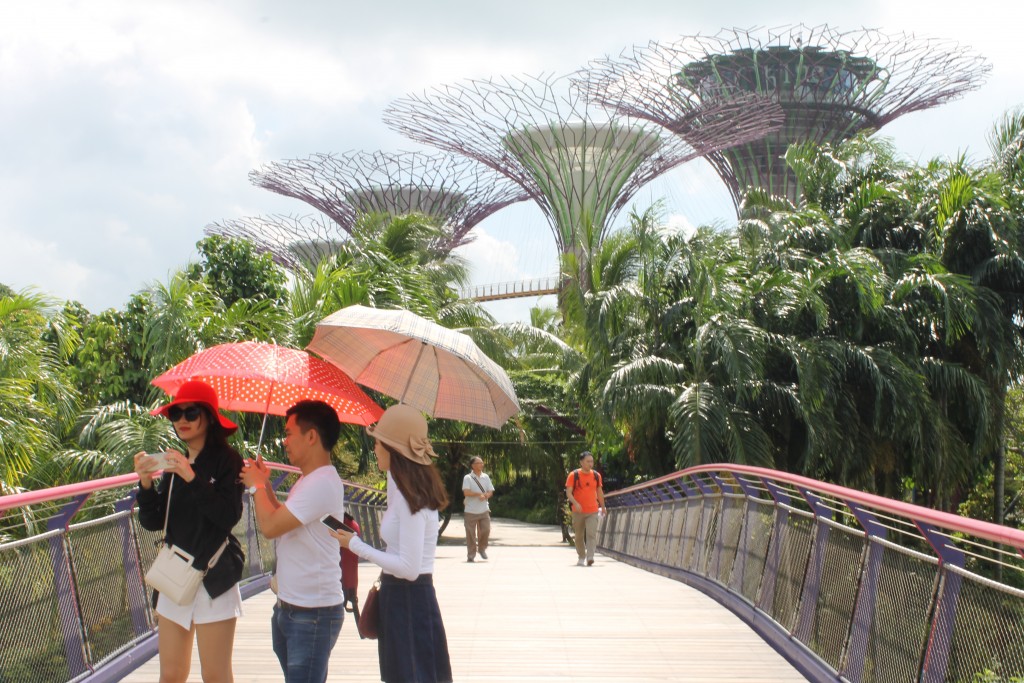
You might also like:
A TV drama featuring a romance between a soldier and a doctor in a fictional war-torn nation is reigniting a South Korean pop culture boom across Asia that’s set to provide an economic boost.
The Descendants of the Sun is a monster hit in China, drawing more than 2.4 billion views on video-streaming website IQiyi.com since it began airing in late February. It’s also the highest-rated show in South Korea. The show is so popular in China that the morality department of the nation’s security ministry issued a statement on Weibo warning viewers that TV shows don’t portray reality and if you take them too seriously you’ll be disappointed.
The show brings together two of Korea’s most recognizable stars: Song Joong Ki, who plays the captain of Korea’s special forces in his first TV role after completing his mandatory military service; and actress Song Hye Kyo, whose character, a successful surgeon, is forced into a medical mission. The two fall in love after being dispatched to the same country overseas. It was filmed in Greece, in an old mining town in Korea’s Taebaek city, and in Seoul.
Its popularity across Asia is raising prospects for an economic boost to Korea. The potential upshot would mean more tourists, especially from China; a rise in overseas sales of products featured in the drama; and more investment in Korean entertainment companies by Chinese companies seeking partnerships.
South Korean President Park Geun Hye has even weighed in on the phenomenon. She said Monday that Descendants of the Sun is having a positive impact on exports of Korean cosmetics, fashion items, and food and is an example of how cultural content is benefiting the economy.
Overseas sales of Korean cosmetics rose 22 percent this year through March from a year earlier, even as overall exports fell 13 percent, data from the trade ministry and customs office show. Sales of cosmetics were supported by the popularity of Korean movies, music, and TV programs, leading to a preference for local cosmetics brands, the customs office said in an April 5 statement.
Lipstick Sales
This increase can be tied to The Descendants of the Sun. Domestic sales of lipsticks by Laneige—the brand worn by actress in the drama—rose 360 percent in March from a year earlier, Korean beauty group AmorePacific said in an e-mail. The lipsticks were sold out in stores in the Myeongdong retail district, a popular tourist destination, as demand from Chinese shoppers rose, AmorePacific said.
The Descendants of the Sun, whose last episode airs April 14 in Korea, is often compared with My Love From the Star, a Korean drama that aired in early 2014 and led to a boom in Chinese shopping and tourism.
The Korea Culture & Tourism Institute estimates that total revenue from My Love From the Star—from tourism receipts as well as overseas sales of the TV series and products featured in it—was about 530 billion won ($460 million). Taking into account the so-called multiplier effect of boosting production of related items, the drama’s economic impact rose to 1 trillion won, equivalent to producing 21,495 Hyundai Motor Sonata sedans, the 2014 report said.
Thirty-two Countries
The Descendants of the Sun has so far signed export contracts with 32 countries, including China, Japan, Germany, and New Zealand, according to the drama’s producer, Next Entertainment World Co. It was sold to TV stations and video-streaming websites, including China’s IQiyi.com, which is paying about $250,000 per show.
The drama has been hailed as an example of cultural cooperation with China by Korea’s vice finance minister, Choi Sang Mok. Chinese companies are increasingly investing in Korean companies as a way to boost the service industry and shift to an economy led by domestic demand. China’s Zhejiang Huace Film & TV purchased a stake in the Korea drama producer Next Entertainment World in 2014.
“Korean entertainment firms have so far favored investment from China as a tool to enter China’s huge domestic market,” said Lee Eun Mi, a researcher for the Institute for International Trade in Seoul. “Collaboration between the two countries have so far worked in the services sector, especially as China and Korea have cultural similarities. Still, if this continues and Chinese companies obtain skills to unilaterally produce dramas and films, there would be less room for Korean companies in China market.”
To contact the author of this story: Jiyeun Lee in Seoul at jlee1029@bloomberg.net.
To contact the editors responsible for this story: Jodi Schneider at jschneider50@bloomberg.net, Peter Pae at ppae1@bloomberg.net.
©2016 Bloomberg L.P.
Source: skift.com
